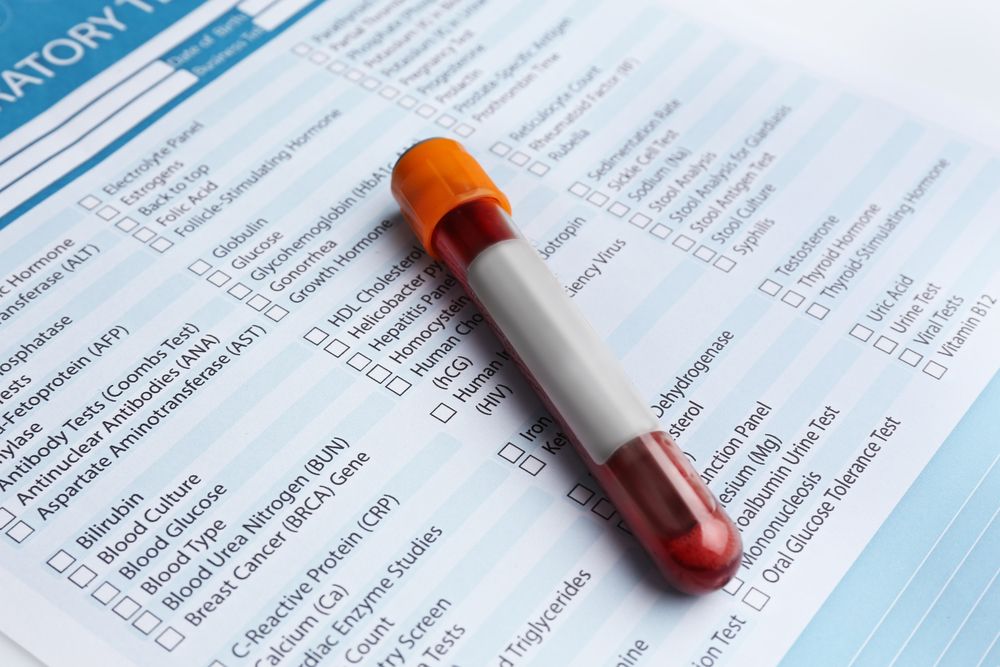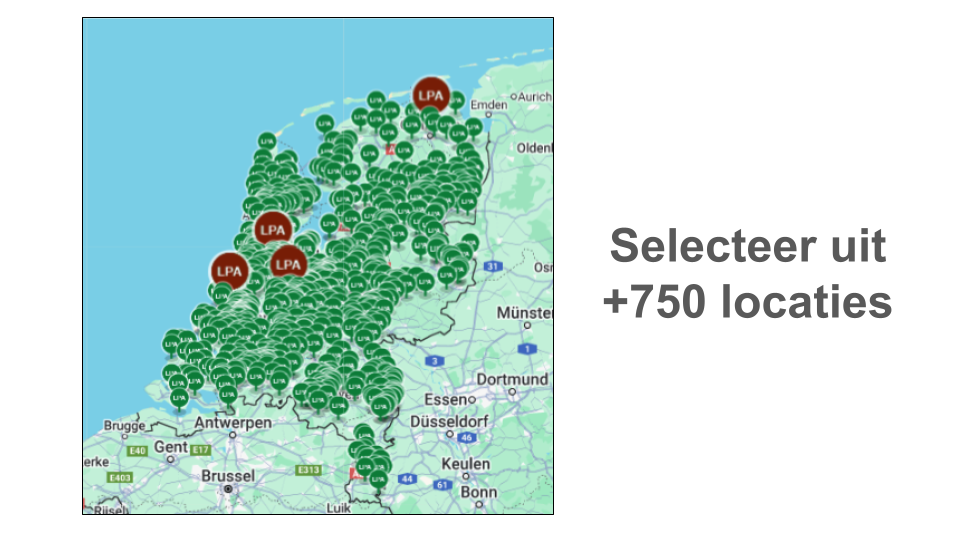Celiac disease - What is it?
Celiac disease is an autoimmune disease in which there is intolerance to a protein in gluten. Gluten is found in grain products, such as wheat, bread and pasta. People with a gluten allergy are hypersensitive and quickly develop complaints such as stomach pain. This is often after eating, but it can also be a while later. The best treatment for celiac disease is to avoid gluten. In the supermarket you increasingly see gluten-free alternatives.Celiac disease is an autoimmune disease in which the body's immune cells attack the intestinal mucosa. This causes atrophy of the intestinal mucosa. When a visual examination is performed, one sees smooth mucous membrane of the intestines, we call this villous atrophy. Visual examination is the best diagnostic tool, but this is a rather unpleasant method to arrive at the diagnosis. Another option is blood tests.
When there is villous atrophy, nutrients such as vitamins are not absorbed properly. This can cause fatigue, depression, anemia and osteoporosis, in addition to diarrhea and constipation. These are very diverse complaints, so celiac disease is not immediately considered.
We measure markers that demonstrate celiac disease with a blood test. This was previously done with three markers, namely endomysium IgA, anti-tTG and total IgA. The blood test for celiac disease today is accurate with just the anti-tTG.
What do we determine?
Tissue transglutaminase
Antibodies against tissue transglutaminase are based on the presence of IgA antibodies, a protein of the immune system. If there is an IgA deficiency, this test is less reliable. If this is the case and the results are in the gray zone, additional free deamidated gliadin IgG will be requested.Endomysium Antibodies
Endomysial antibodies of class IgA are not unique to the diagnosis of celiac disease, but can also occur in other diseases. The level of the titer often corresponds to the severity of the villous atrophy in celiac disease. After starting a gluten-free diet, the titer will drop within 6-12 months. Because these antibodies are not specific for the diagnosis of celiac disease, they are no longer determined nowadays.Total IgA
IgA stands for antibody A. Our immune system has many different immune cells. However, we know some of the antibodies (such as IgM, IgG and IgE). With celiac disease there is often a decrease in the concentration of IgA antibodies. If the tissue transglutaminase gives rise to this, the total IgA is also measured.Fasting test?
You do not need to be fasting for this blood test. It is important not to stop eating gluten in the weeks and days prior to this test. The results take an average of 5 working days.When to choose this blood test?
Choose the celiac blood test when:- You suspect have a gluten allergy
- You have misunderstood abdominal pain complaints and do not think about IBS
- You suffer from diarrhea or constipation that gets worse with eating of gluten
When to test?
In case of complaints here described, it is recommended to perform this Celiac blood test once. In the event of negative results where the suspicion of Celiac disease remains high, you can be referred for an endoscopy.How accurate is the Coeliakie blood test?
The accuracy of the test for Coeliakie is conducted through ISO-certified laboratories. The accuracy of a test method is expressed in terms of specificity and sensitivity. However, the most important aspect is that the results are interpreted and accepted among general practitioners and hospitals. This is the case with our venous samples. Mutual acceptance may not always be present due to potentially reduced reliability with a capillary sample.
How long does it take to receive the results of a Coeliakie blood test?
Most tests generally take 24-48 hours. Tests that go through an LC-MS method generally take longer, think about an average of 3-7 working days. Additionally, it also depends on the location. Some locations do the analysis themselves and others outsource it to another lab.
How do I interpret the results of a Coeliakie blood test?
Interpreting the results of Coeliakie is not always easy and should be seen in the broader picture, along with anamnesis and physical examination. In the doctor's advice section, the query in which you can already outline your complaints is taken into account, otherwise, the results are interpreted in conjunction with the other results. If necessary, the doctor can call to ask about physical abnormalities. You don't have to interpret the results yourself because there is always advice and explanation from the doctor.
What should I do if my results from a Coeliakie blood test are abnormal?
If the results of the test for Coeliakie are clinically significantly abnormal, the doctor will contact you by phone. If you are not reachable, you will receive an email. This includes advice and an explanation of the abnormal results and what you can do about them. If you need a prescription or referral, we can help with that.
How much does a Coeliakie blood test cost? Is it covered by insurance?
The costs of Coeliakie can be found on the product page. Depending on your insurance and additional packages, you may be reimbursed for these costs for Coeliakie. For example, tests for IVF treatment are often reimbursed. After your order, you will receive an invoice that you can submit to your insurance.
How can I order a Coeliakie blood test?
The ordering process is easy. You can add a Coeliakie test or the tests you want to your shopping cart. In step two, you fill in your details and pay. Then you will receive an email confirmation and you can go to a collection location. After you have been there, you will receive the results of the Coeliakie test in your Portal.
Is my data safe when I get a Coeliakie blood test?
We are certified-ready according to the NEN 7510 and 7512 standards for secure data transfer in healthcare. The Portal is secured with two-factor authentication. Your data is also encrypted. We do not send the results of Coeliakie to third parties without permission, not even to your general practitioner without your consent.
Do I need to visit a clinic for a Coeliakie blood test, or can it be done remotely?
The blood test for Coeliakie must take place at one of the collection locations we provide. At certain locations, it is possible for a phlebotomist to come to you. You can indicate this during checkout. An appointment will then be made as soon as possible to come to your home.
How do I book an appointment for Coeliakie blood test?
You can easily make an appointment for Coeliakie blood test after your order in your Portal. You can visit almost daily in all major cities in the Netherlands. In smaller cities, you can visit on certain days. At certain locations, it is also possible to visit on weekends.
Is a doctor's interpretation included in a Coeliakie blood test?
An interpretation by a doctor or an explanation is included in the Coeliakie test. The explanation takes into account the query that you can specify in your Portal after ordering.
How does a Coeliakie blood test differ from over-the-counter tests?
For blood tests, we always use venous sampling. This is the gold standard for blood collection. Over-the-counter tests, such as a finger prick test, use the capillary route for blood collection. These do not always give the same results and the accuracy depends on how, where, and with which technique the collection is done. The advantage, of course, is that the test is easier and less painful to take.
What payment options are available for a Coeliakie blood test?
You can always pay with iDeal and credit card (VISA, Mastercard, and Amex). This also includes Apple Pay. The phlebotomists at the collection location cannot accept cash payments.
Are the results of a Coeliakie blood test shareable with my doctor?
The results of Labplusarts can be shared with your general practitioner at your request. However, you can also easily arrange this yourself by downloading the result in PDF format. Because we use comparable test methods as the general practitioner, the results are interchangeable and comparable so that comparisons can be made well.


